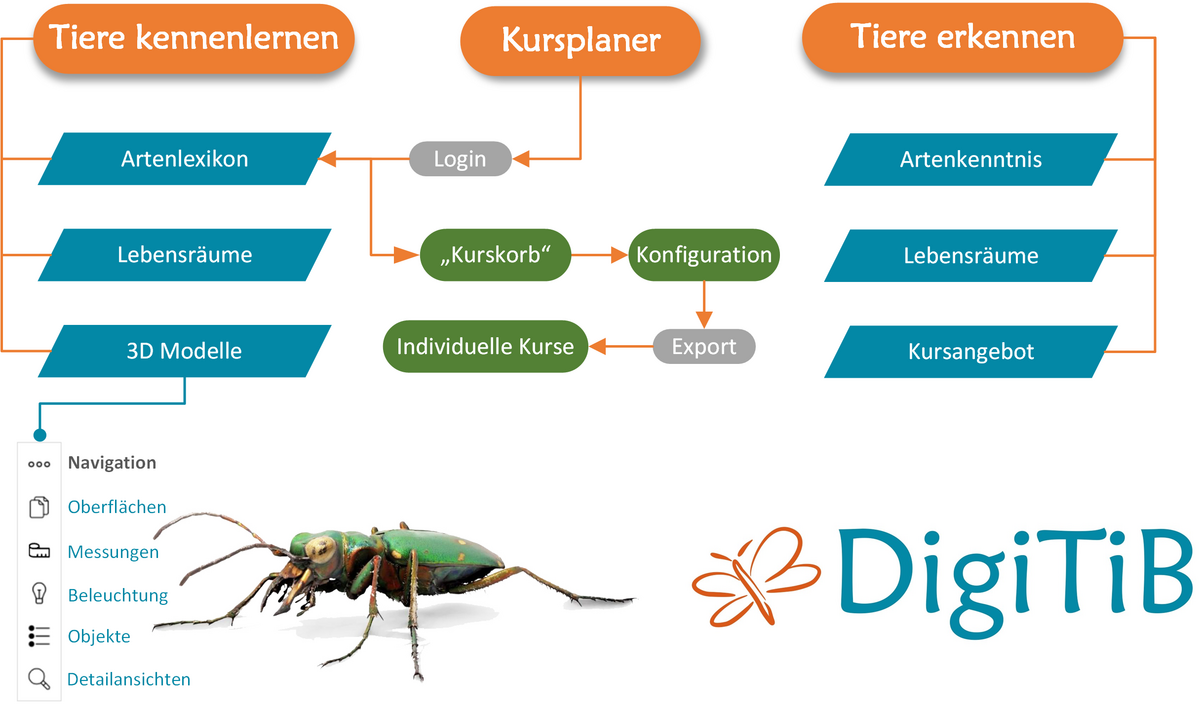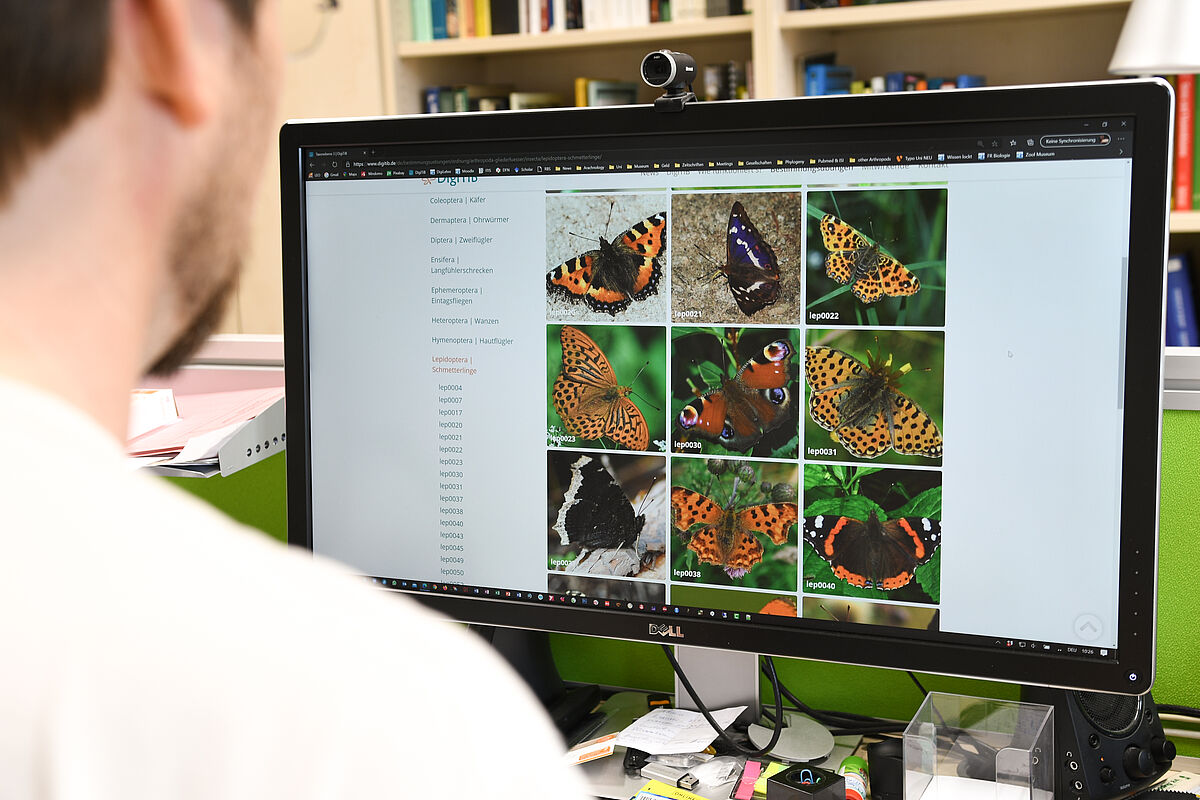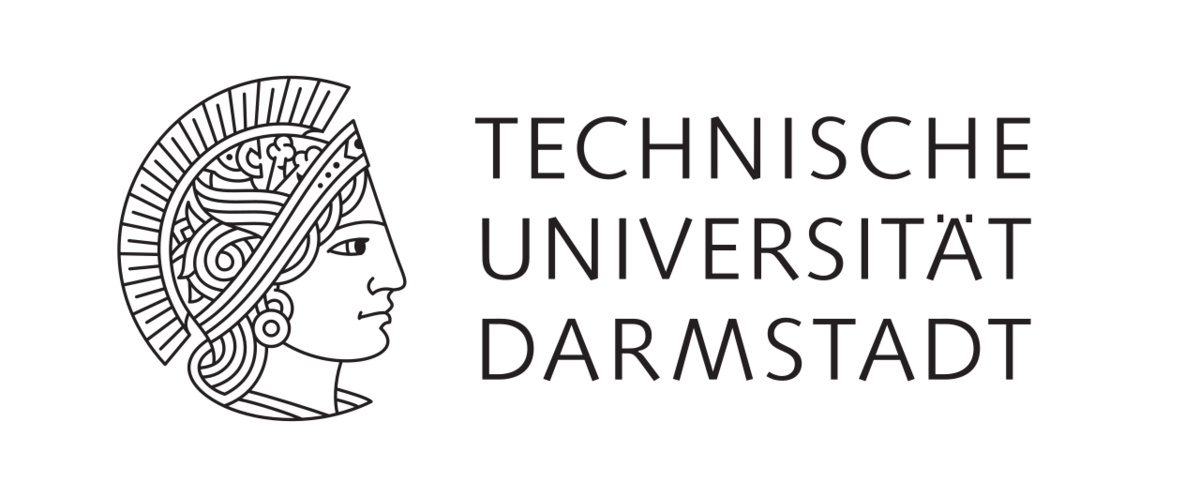In-depth knowledge of the diversity of organisms and their functions in ecosystems forms the basis for sustainable action in conservation. Recognising organisms in their habitats plays a central role in this. For this reason, the teaching of knowledge of native animal and plant species is a fundamental component of bioscience education and takes place within the framework of practical training using collection material or on excursions into the field. DigiTiB has the goal of significantly enriching teaching and learning formats for the teaching of species knowledge through digital content.
DigiTiB is designed as a learning and teaching platform and enables virtual access to numerous objects. The platform is divided into the areas of getting to know animals and recognising animals as well as a course administration, and thus allows different approaches to teach and train species knowledge. Due to its structure, DigiTiB can grow at will and can also be enriched with material for specialised courses if required. The platform currently contains information and digital representations of over 600 species of molluscs, arthropods and vertebrates.
The above-mentioned functions open up numerous application possibilities in the training of species experts or simply for interested people who want to check their knowledge of species and learn something about the local fauna. For example, exercises can be distributed before the courses (e.g. skull identification of mammals) so that participants are joining the course already pre-informed and with specific questions. During the course, participants can use digital comparative material in addition to the physically available material to eliminate possible ambiguities in the interpretation of features in dichotomous keys. The animal identification can also be checked in face-to-face events with DigiTiB if the material is also marked with the DigiTiB codes. TThis also has the advantage that an intact virtual copy is available for animal identification in addition to the (possibly damaged) physical copy. In addition, teaching staff can use DigiTiB as a demonstration platform and thus clearly demonstrate functions in the course using the available 3D models, among other things. A major problem was often the lack of access to material and technology to consolidate and practise knowledge outside of contact time in the courses. DigiTiB fills this gap and now offers the opportunity to practise and, if necessary, prepare for possible exams.
The development of DigiTiB was accelerated by the consequences of the coronavirus pandemic and the resulting immediate demand for digital learning formats throughout Germany. Without the support of extensive image material contributed from employees of almost 20 German universities of applied sciences and institutions, the rapid implementation would not have been possible!
DigiTiB was developed within the framework of the project "Blended Learning in der praktischen biowissenschaftlichen Lehre", which was funded by the state of Mecklenburg-Vorpommern (2019-2023).
Co-operation partner
Prof. Dr. Michael Heethoff
TU Darmstadt - Ecological Networks
Digitales Naturhistorisches Archiv Darmstadt e.V.





